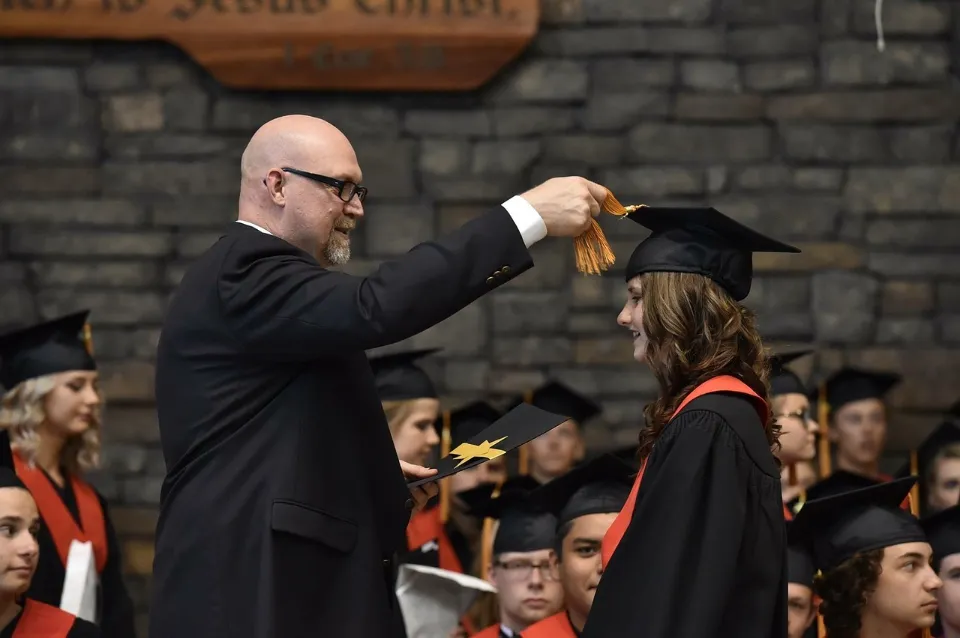
Is Getting a Grad School Interview a Good Sign?
Is getting grad school interviews a good sign? The importance of the graduate school interview can be attributed to several factors.
You should rejoice if an interview invitation has been extended to you. It’s a positive sign if the program is more interested in you than other applicants and wants to find out more about you and your academic interests.
Consider the following as you get ready for your graduate school interview.
Is Getting a Grad School Interview a Good Sign?
The interview may be the last step in the admissions process for some graduate programs, indicating that the school is seriously considering admitting you. While an interview invitation is exciting, it’s by no means confirmation that you’re going to be admitted.
It’s the last hurdle in the application process and, more importantly, it’s your final chance to make a good first impression.
You will have the opportunity to demonstrate your value in terms of the intangibles you hinted at in your essays, resume, and recommendations during the interview. You will also have the chance to give yourself a fresh perspective through a personal connection.
The importance of graduate school interviews has increased because colleges are now requiring (or should we say offering?) fewer and fewer essays each year.

How to Prepare for a Grad School Interview?
How do I get ready for a graduate school interview? The process of getting ready is similar to that of a job interview once you know what type of interview to anticipate. Here are some tips on how to prepare for a grad school interview from AdmissionSight to keep in mind:
Research the Interview Process for Each School
While some aspects of programs are universal, such as the most frequently asked interview questions (more on that below), you should start by learning about the particular admissions interview procedure for each school you intend to visit. After receiving and reviewing the instructions for the interview, consider asking the following questions if they have not already been answered for you:
- Who will be speaking with me in the interview? And in what setting (panel, 1-2 faculty)?
- Will my application materials, such as my test results, transcripts, resume, statement of purpose, etc., be available to the interviewers?)?
Knowing the answers to these questions will help you prepare for questions to ask and the level of detail you should be prepared to give.
You Might Also Like: Does Early Graduation Look Bad to Colleges?
Know the Most Commonly Asked Graduate Admissions Interview Questions, and Practice Your Answers
The same fundamental information is requested by all schools: who you are, your research interests, your career goals, and how you intend to contribute to the school’s program.
Making time to prepare thoughtful, sincere, and persuasive responses to the most frequently asked graduate school interview questions is a great place to start when preparing for an interview. Consider your responses carefully, then practice, practice, practice with a friend or family member.

Come Prepared
Being well-prepared is arguably the best way to make an impression during your interview. It shows that you are seriously interested in the program when you approach the interview with confidence and composure.
Small details, like arriving early, dressing professionally, maintaining good hygiene, and carrying a copy of your resume, CV, and other crucial documents, can add up quickly when you put effort and time into them.
You should also bring questions you want to ask the interviewers. You have an equal chance to get to know them and they have an equal chance to get to know you through this.
They’ll probably give you the chance to ask questions of your own after they’ve finished asking them. This is the ideal chance for you to show that you are committed to the institution and are genuinely interested in the course of study.
Be Ready to Talk About Yourself (Confidently)
The majority of interviews will start off with an ice-breaker query. You’ll be asked to provide a brief introduction of yourself by the interviewer. Bring a concise summary of who you are, why you are passionate about this topic, and how you became interested in your field of study, which you can confidently share.
Furthermore, you should be prepared to discuss why you would be a good fit for the institution and how your research interests would complement those of a faculty member.
Be Mindful of Nonverbal Communication
In interviews, your body language frequently conveys a message louder than your words. Your body language, facial expressions, and gestures are all examples of nonverbal communication.
Practice in front of a mirror or a friend if you are aware that some of these are areas where you struggle. When it’s time for the real thing, your practice will pay off because repetition creates muscle memory.

Although feeling a little anxious is normal, try to relax by taking a few deep breaths. To help you out, here is a step-by-step guide to acing nonverbal communication throughout your interview:
- Be confident as you enter the interview.
- Give the people who will be interviewing you a firm handshake, make eye contact, smile, and say hello!
- Maintain eye contact, sit up straight with your shoulders back, and sit comfortably.
- Remember to breathe, smile, and relax your face; a brow furrowed or clenched jaw conveys anxiety.
- Aim to curb any nervous tics like twirling your hair or tapping your foot. Instead, take part in the conversation and concentrate on the current issues.
- Thank the staff and faculty once the interview is over. Once more, smile, look each other in the eye, and shake hands firmly.
- Sending a written thank-you note after your interview will demonstrate your sincerity and gratitude.
Every Moment is An Interview
You might tour the campus, interact with current graduate students, and meet members of the faculty and staff during your visit. Keep in mind that each moment of your visit to the school is an interview, so present yourself in the best possible light.
Always act ethically and responsibly because current students may have an impact on your admissions decision.
Conclusion: Grad School Interview
Your interview answers should be an opportunity to highlight your accomplishments and share information about you that wasn’t included in your application materials. Make each response you give during your graduate school interview stand out by emphasizing your unique skills, motivations, and capacities.
Be confident in your preparation and good luck! Come ready to present the best version of yourself!
FAQs
Does Every Grad School Applicant Get An Interview?
Not all grad schools require an admissions interview, but if they do, it’s an opportunity you’ll want to take advantage of.
How Much Do Interviews Matter for Grad School?
The importance of the graduate school interview can be attributed to several factors. It’s the last obstacle in the admissions process, and, more significantly, it’s your last opportunity to leave a positive impression.


